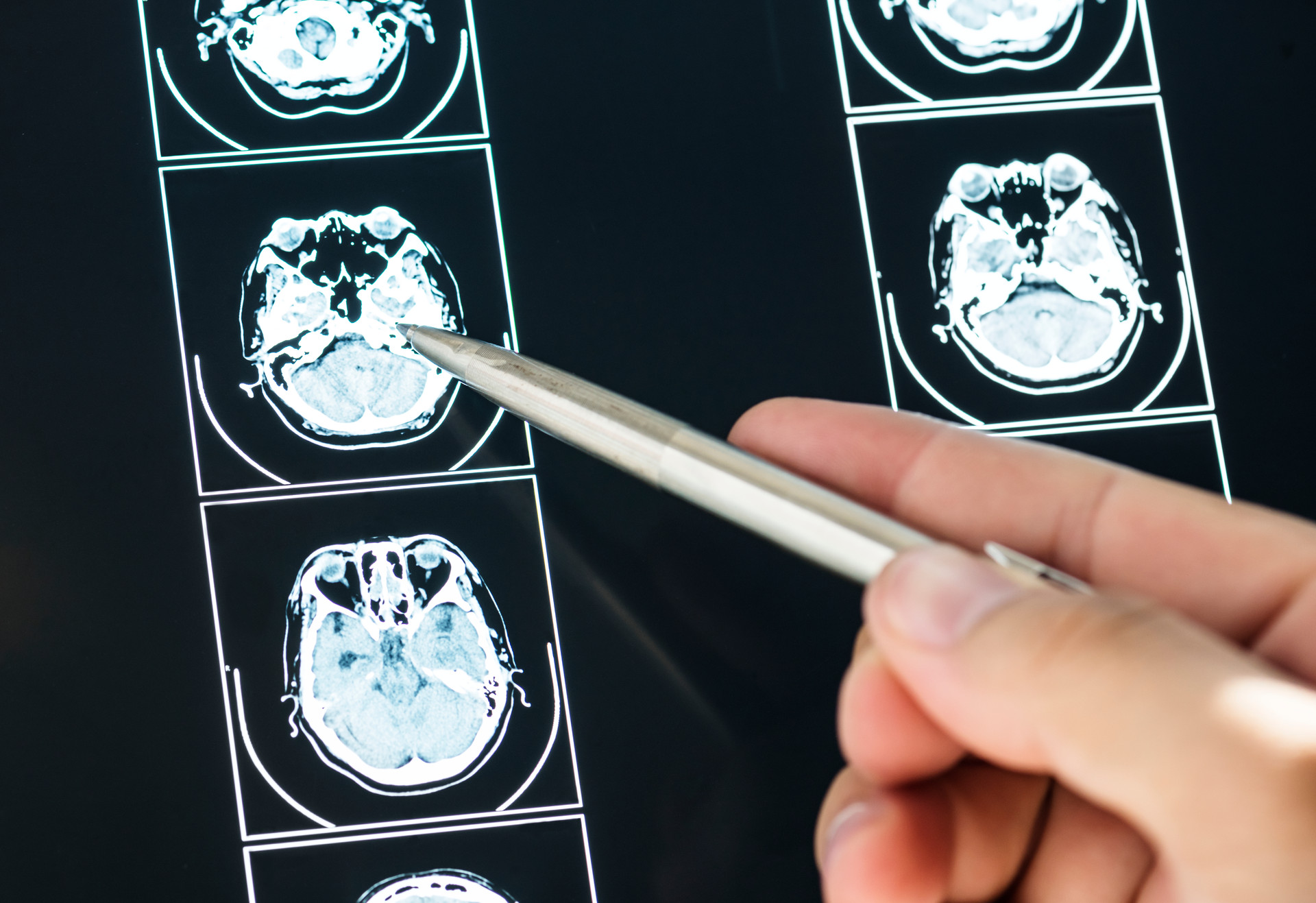Understanding Neurological Disorders: Signs, Symptoms, Causes, What to Do
Neurological disorders are a complex group of conditions that impact your brain, spinal cord, and nerves. Because they can cause a variety of troublesome symptoms, it’s important to recognize the signs and understand the best natural treatments available.


Neurological disorders are a complex group of conditions that impact your brain, spinal cord, and nerves. Because they can cause a variety of troublesome symptoms, it’s important to recognize the signs and understand the best natural treatments available.
We’ve all either personally experienced or know someone who has experienced troublesome health concerns such as migraines, vertigo, neuropathy, and even anxiety. But did you know these are actually rather common neurological disorders?
That’s right, these conditions all have a common root in that they impact your entire nervous system. Here’s why that’s important: Your nervous system acts as your body’s communication network and includes your brain, spinal cord, and nerves.
It sends electrical and chemical signals throughout your body to help control and coordinate numerous activities in your body, including processing information, regulating bodily functions, and more. Essentially, it’s your body’s command center that helps to ensure your overall health and survival. And it’s this vital role of your nervous system that explains why it’s so important to address and treat neurological disorders.
But before we discuss how to treat them, we must first better understand what these disorders are and how they impact your health and well-being. So, let’s take a closer look at neurological disorders, what they are, how they impact your body, and what to do if you suspect you may have one.
What Are Neurological Disorders?
Neurological disorders are complex conditions that affect the way your brain, spinal cord, and nerves function. They differ from brain disorders in that they involve your nervous system and, as a result, they often cause a wide range of symptoms that impact your daily life, from cramps and movement problems to trouble with balance and even cognitive impairments.
While they are known to stem from different catalysts, which we’ll review in more detail later in this article, neurological disorders are ultimately caused by a disconnection between your brain and your body. And they’re probably more common than you think, as they’re estimated to affect about 15 percent of the world’s population. That’s more than 1.2 billion people!
You may be familiar with certain neurological disorders, including recurring seizures, Parkinson’s disease, and Alzheimer’s disease, all of which are neurological disorders that display their own symptoms. For example, Parkinson’s affects a person’s movement and causes symptoms such as tremors, stiffness, and issues with balance while Alzheimer’s impacts cognitive function. But there are many other neurological disorders that are quite common, including migraines, neuropathy, and even vertigo.
Let’s review some of the most common neurological conditions to better understand them.
What Are The Most Common Neurological Disorders?
While there are many different neurological disorders, some are more prevalent than others. Take a look at this neurological disorders list to learn about some of the more common disorders and how they present.
1. Functional Neurological Disorder
Functional Neurological Disorder (FND) is a neurological disorder where your brain and body are disconnected, which results in impaired movement. Essentially, your brain and body are out of sync with each other. As a result, you will begin to experience symptoms including weakness, tremors, numbness, coordination issues, seizures, brain fog or memory loss, and more.
2. Functional Movement Disorder
Functional Movement Disorder (FMD) is another neurological disorder caused by a disconnect between the brain’s movement control system and the body, leading to restricted and/or abnormal movements, such as tremors or jerks, and pain. FMD differs from FND in that FMD primarily impacts voluntary movements while FND is known to cause weakness or paralysis in specific body parts.
3. Neuropathy
Neuropathy is a neurological disorder stemming from nerve damage or dysfunction that causes a variety of symptoms, including numbness, tingling, pain, and/or weakness. Common types of neuropathy include:
- Peripheral neuropathy (the most common type of diabetic neuropathy that causes symptoms in your hands and feet).
- Proximal neuropathy (a type of diabetic neuropathy that causes symptoms in your hips, thighs, and buttocks).
- Cranial neuropathy (nerve damage in the the brain stem that causes symptoms in the face or in your vision).
- Autonomic neuropathy (damage to the nerves that control your internal organs and certain bodily functions).
- Focal neuropathy (damage to a limited number of nerves due to an injury or diabetes).
4. Cardiovascular Autonomic Neuropathy
There’s another type of neuropathy: cardiovascular autonomic neuropathy, which occurs when there’s damage to your autonomic nerves, which travel from your brain to your heart. They’re responsible for regulating your heart’s function, so when these nerves are damaged, you can experience irregular heart beat, high blood pressure, and even heart failure.
5. Multiple Sclerosis
Multiple sclerosis (MS) is an autoimmune neurological disorder that challenges your body’s own defense system. It’s essentially an attack on myelinated neurons that happens due to the dysregulation of neurological immune system integrity, resulting in an immune attack on the nerves of the brain and cervical spinal cord. This can happen due to many causes, but the onset is associated with a lack of one of the three systems that keep nerves functioning properly: oxygen, nutrients, and stimulation.
Because it occurs in the central nervous system, it causes a whirlwind of coordination problems, balance issues, and issues with muscle control. For example, if the immune system attacks a nerve, all three critical mechanisms that keep a nerve alive (oxygen, nutrients, and stimulation) will suffer. Whether the nerve problems are in the motor area of the brain causing motor coordination issues or within the cervical spinal cord causing hand sensation problems, the lesions cause the brain and body to disconnect from all of the things the brain does to process motion and feedback from the body and prepare a response to the stimuli.
6. Mental health disorders
You may be surprised to learn that in the world of neurological disorders, mental health conditions such as anxiety disorders, depression, and bipolar disorder take center stage. While these disorders impact your emotions, they also affect your nervous system.
In fact, anxiety disorders are known to be associated with abnormal oscillations in the brain. Oscillations are abnormal brain rhythms that distort or create noise in the frontal lobe processing systems, which generally disturb memory formation, executive function, goal-oriented behavior, and pattern recognition. The only clear ways we know of that affect these brain waves are the loops and filters that are in charge of managing emotions in the basal ganglia and the reflexes coordinated by the cerebellum.
7. Post-concussion disorder
Post-concussion disorder happens in the aftermath of a head injury. When you have post-concussion disorder, you experience persistent symptoms such as headaches, dizziness, and trouble concentrating. These symptoms often appear within the first week or two after the injury and typically last a few months, though some people have been known to struggle with post-concussion disorder for a year or more.
8. Migraines
When you think of migraines, the idea of them being a type of neurological disorder may not spring to mind. But the truth is that migraines involve both the central and peripheral nervous systems. The most common neurological condition, migraines affect more than a billion people throughout the world and cause a severe throbbing pain on one side of the head and are often accompanied by nausea, sensitivity to light and sound, and possibly auras.
9. Vertigo
Vertigo causes a disorienting feeling of spinning or dizziness. It’s commonly believed to be caused by inner ear problems, but, in reality, your cervical spine contributes to vertigo in a significant way. Interestingly, research has shown that your cervical spine plays a big role in your ability to stay balanced. So anytime it’s inflamed or injured, you can experience dizziness.
10. Dystonia
Dystonia is a neurological disorder that causes uncontrollable movements due to involuntary muscle contractions. These uncontrollable movements are often repetitive or twisting motions that impact one or more parts of your body and can range from mild to severe. Studies have shown that prioritizing the resynchronization of the brain and body through chiropractic adjustments can provide a substantial reduction in the cervical dystonia rating scale, even after standard medical interventions failed to provide relief.
11. Tics
Tics are characterized by sudden bursts of movement or vocalizations that are difficult to control or restrain. Though they’re commonly associated with experiencing stress or anxiety, tics occur due to a dysfunction in the basal ganglia pathway, a complex neural circuit located deep within your brain that’s involved in numerous cognitive functions, learning, and motor control. Tics often develop in early childhood as a coping mechanism and often manifest as repetitive blinking, grunting, coughing, jerking, or saying a key sound or phrase over and over.
Signs and Symptoms of Neurological Disorders
As you now know, neurological disorders symptoms and signs can vary depending on the specific condition. But there are some common symptoms that may indicate you may be experiencing a neurological issue, including:
- Changes in your coordination, balance, or gait
- Weakness or numbness in your limbs
- Problems with speech or swallowing
- Seizures or convulsions
- Memory problems or confusion
If you or a loved one experience any of these neurological disorders symptoms, it’s important to see a healthcare professional for an evaluation, especially considering that neurological disorders can affect people of all ages, from infants to the elderly. In children, symptoms may manifest differently than in adults, and they often lead to developmental delays or behavioral changes. That’s why it’s crucial for parents to be vigilant and seek medical advice if they notice any concerning signs in their child’s neurological development.
Additionally, it’s worth noting that the impact of neurological disorders extends far beyond physical symptoms. Those living with a neurological disorder often experience emotional and psychological challenges as well, such as anxiety, depression, and mood swings. This is why it’s important to take a holistic approach to neurological care and address both physical and mental well-being.
What Causes Neurological Disorders?
Neurological disorders are ultimately caused by a desynchronization between the brain and body, but the catalyst for this can be a variety of factors, from genetic mutations or abnormalities to infections, injuries, or even exposure to toxins.
Some neurological disorders are also associated with autoimmune diseases, where the body’s immune system mistakenly attacks its own tissues. In addition to multiple sclerosis, which we reviewed above, these diseases include autoimmune encephalitis, Guillain-Barré Syndrome, stiff person syndrome, lupus, and more.
Associated Risk Factors and Conditions
In addition to the causes listed above, there are certain risk factors and conditions that can increase your risk of developing a neurological disorder. These include being age 60 or older, family history, exposure to certain toxins or infections, having a head injury, or having a chronic condition such as diabetes or high blood pressure.
How Are Neurological Disorders Diagnosed?
Diagnosing neurological disorders can be challenging, as they often require a combination of different techniques. Here are some of the most common tests and considerations used to diagnose a neurological disorder.
- Physical exams: Your physician will conduct a thorough examination of your nervous system as well as your overall health to help identify any abnormalities.
- Medical history: Gathering information about your symptoms and personal or family medical history can provide valuable insights for your physician.
- Imaging tests: CT scans, MRIs, and other imaging techniques provide the detailed pictures of your brain and spinal cord required to diagnose a neurological condition.
- Electrodiagnostic tests: These tests measure the electrical activity of your muscles and nerves to assess their function.
- Laboratory tests: Finally, blood tests and other lab work can help identify underlying causes as well as rule out certain conditions.
FAQs About Neurological Disorders
Here are the answers to some common questions about neurological disorders, including what to do if you’re diagnosed with one.
1. What neurological disorders cause balance problems?
All neurological disorders can cause balance problems. That said, some conditions cause dizziness more than others, including vertigo and postural orthostatic tachycardia syndrome (POTS).
Interestingly, cervicogenic dizziness is a vestibular problem that is the most common type of dizziness and people tend to get this confused with vertigo. It’s important to distinguish between the symptoms of dizziness (which is a true spinning sensation that occurs with vertigo), cervicogenic dizziness (which feels like a rocking boat), and lightheadedness (which occurs with POTS).
Once you can identify what you’re experiencing, you can begin to take steps to correct the problem. For example, cervicogenic dizziness can be resolved with comprehensive chiropractic care.
2. What are the neurological disorders that cause muscle cramps?
Due to their nature, restless legs syndrome (RLS) and dystonia can feel like cramps. As you know, dystonia causes uncontrollable movements while RLS causes uncomfortable sensations in your legs, causing you to feel an irresistible urge to move them. Both can cause severe symptoms and aches that feel like muscle cramps.
3. Is autism a neurological disorder?
Yes; with autism, the brain and the nerves in the brain are not connected in the way they need to be because the development regions don’t connect as they were intended. This disconnection is what causes the common signs and symptoms of autism.
4. ADHD a neurological disorder?
Yes, ADHD is also a neurological disorder, as it’s believed to be on the autism spectrum. ADHD is considered to be lowest on the spectrum, while autism is at the high end. ADHD is ubiquitous in our population, and though it’s technically considered a disorder, many who have it adapt to it and ultimately its strengths to their advantage.
5. Is fibromyalgia a neurological disorder?
Fibromyalgia is absolutely a neurological disorder. Your insular cortex is part of your posterior cingulate gyrus, which is right under the system that promotes self-awareness. These parts of your brain are involved in pain perception, but research has shown that there is an altered state of connectivity in the insular cortex of those with fibromyalgia. Additionally, those with increased sensitivity, such as people with fibromyalgia, tend to move less due to the perceived pain, which can actually increase their ability to perceive pain, meaning their pain is continually perceived at a higher level.
6. What is the neurological disorder dyspraxia?
Dyspraxia is a neurological disorder that’s also known as developmental coordination disorder. A lifelong condition that begins in childhood, dyspraxia causes challenges in planning and executing both fine and gross motor skills. It’s important to note that dyspraxia is not in any way related to intelligence, though it does tend to cause trouble with academic achievement, speech and language concerns, and sensory processing sensitivities.
7. Are there natural ways to treat neurological disorders?
While the outlook for those with neurological disorders can vary, anyone with a diagnosed or suspected neurological concern should prioritize resyncing the brain and body as the first step in their treatment.
There are many natural ways to begin to prioritize the connection between your body and brain, but a great place to start is by following an anti-inflammatory diet, which has been shown to not only create a positive brain environment but also reduce the risk of developing neurological diseases.
Additionally, it’s important to take a chiropractic functional neurology approach to your care, as this specialized form of care focuses on the relationship between your nervous system and your musculoskeletal system.
Key Takeaways
- Neurological disorders are complex conditions that affect the way your brain, spinal cord, and nerves function and cause a variety of symptoms, from cramps and movement problems to trouble with balance and even cognitive impairments.
- Some of the most common neurological disorders include FND, FMD, neuropathy, MS, migraines, vertigo, mental health disorders, and more.
- While neurlogical disorders are caused by a desynchronization between the brain and body, the catalyst can be a variety of factors, including genetic mutations, infections, injuries, and exposure to toxins.
- There are numerous treatment options available, including natural approaches such as changes to diet and lifestyle as well as chiropractic care and more.
Ready to feel like you again?
* Your next step toward feeling better starts today. At The Dearing Clinic we make it simple to get started with care that truly fits your life. Book your visit now and let’s design a plan that restores your energy, relieves your pain, and helps you enjoy more of what matters most.


